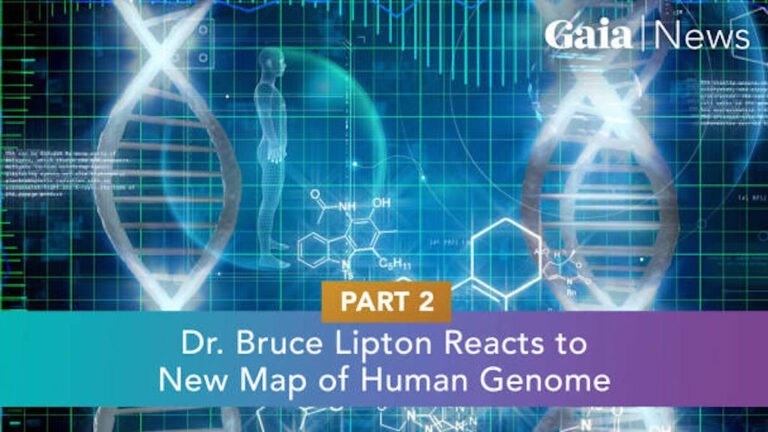Water-Only Fasting Protocols Found to Enhance Cancer Treatments

Intermittent fasting has become popular for health and weight loss. But could fasting also be a highly effective tool for fighting and reversing cancer?
Across the world, nearly every culture has a tradition of fasting, but in our modern lives we’ve created a world of surplus and with it a constant and easily satiated hunger. With this excess food, our society has become plagued by diseases of excess.
Dr. Alan Goldhamer is the founder of True North Health Foundation, a therapeutic clinic for water-only fasting that helps patients suffering from a range of illnesses including hypertension, inflammation, autoimmune disorders, and cancer.
“We’ve gone from being criminal quacks to cutting-edge researchers because this idea of fasting has definitely gained some popular support,” Goldhamer said. “Our approach is very different, we believe that there is a cause of real health and the cause of health is healthful living. So, we focus on diet, sleep, (and) exercise, and we use fasting to undo the consequences of dietary excess, essentially. That’s why the conditions that respond the best to fasting are the conditions caused by dietary excess – so, obesity, high blood pressure, cardiovascular disease, Type II diabetes, autoimmune diseases, and certain forms of cancer, including Lymphoma.
Studies have shown that fasting acts to help the body’s natural ability to destroy dead or diseased cells — a process called autophagy. Now, doctors have begun to study how fasting protocols in conjunction with drugs, such as chemotherapy, can improve the efficacy of cancer treatment.
“It turns out autophagy is the process the body uses to get rid of cellular debris — aging cells and cancer cells — and it turns out that fasting is one of those things that may profoundly enhance autophagy in, not just humans, but also in other animals. In fact in rats, if you do periodic fasting with rats you can double their lifespan (everything else being equal). So, this is something that’s very interesting and promising. I don’t know that we have what I would consider definitive research on the issue, but it certainly raises one of the mechanisms by which fasting may also be effective,” Goldhamer said.
“You know, you get weight loss with fasting — about a pound a day — it’s probably the most efficient way of mobilizing, not just weight, but specifically fat and preferentially visceral fat. So, it turns out fasting is probably the most efficient way shown to date, at preferentially mobilizing visceral fat — the type of fat associated with inflammation and ill health,” Goldhamer said.
Goldhamer stresses the importance of a holistic and healthy lifestyle approach after seeing positive results from a fasting regimen; a concept that is often absent in mainstream medicine.
“You can get people to live healthfully even if you don’t fast, many of these conditions will begin to improve,” Goldhamer said. “We’ve noticed that recently because we’re booked out for several months and so people can’t come in right away, they’ll work with our doctors through our telemedicine practice; and they’ll work with these doctors, and annoyingly, they’re often getting well before we even get to them! Because health results from healthful living, it’s diet, sleep, exercise — these are the dominant factors that promote health. Fasting is a useful tool as a facilitator to speed that process and, in fairness, sometimes people have done the diet and lifestyle, but they’re still struggling. Therefore fasting can be a very important tool that allows a lot of things to happen more quickly.”
Goldhamer’s clinic offers free consultations to potential candidates for long-term water fasts and will continue to conduct research into the therapeutic benefits of fasting for treating chronic illness.
Dr. Bruce Lipton Reacts to New Map of Human Genome

As scientists announce the completion of the human genome map, the emerging science of epigenetics provides an alternate view on how we can gain mastery over our genes and achieve true wellbeing.
Dr. Bruce Lipton is a cellular biologist and leader in the field of epigenetics, which holds that external factors can affect our gene expression.
Lipton’s research over many decades has suggested that it is our environment, and even more importantly how we perceive it, that determines our gene behavior.
“Less than one percent of disease is connected to genes,” Lipton said. “Over 90 percent of illness is stress, which means you’re not living in harmony with the environment, and the function of the cells is to adjust their biology to the environment. But I say, ‘But wait, the brain is the interface between the environment and the genes.’ So, my cells don’t know what the real environment is, my cells only respond to my perception of the environment. Well, positive thoughts can heal you of any disease, that’s placebo (effect).”
“Negative thinking can cause any disease, regardless of what genes you have, because negative thinking through epigenetics can rewrite healthy genes and turn them into cancer. You’re creating the good, but you also have to recognize you are participating in creating the negative things as well,” he said.
The biggest roadblock to exerting a positive influence over our genes, Lipton says, comes from faulty programming.
“All of us got programmed the first seven years of our life. We play the program 95 percent of the day,” Lipton said. “The conscious mind, which is the creator mind, is separate from the subconscious mind, which is the programmed mind. The significance is that subconscious is on autopilot, and if 95 percent of your life is coming from the subconscious, then you are playing programs and you’re not playing creator. The issue is the programs we got in the first seven years, up to 60 percent of those programs are beliefs, they’re things that are disempowering, they’re self-sabotaging, or limiting behaviors, and therefore, we’re losing power in the program that says, ‘Who do you think you are? You don’t deserve that. You’re not that smart.’ These are things we acquired when we were young.”





































